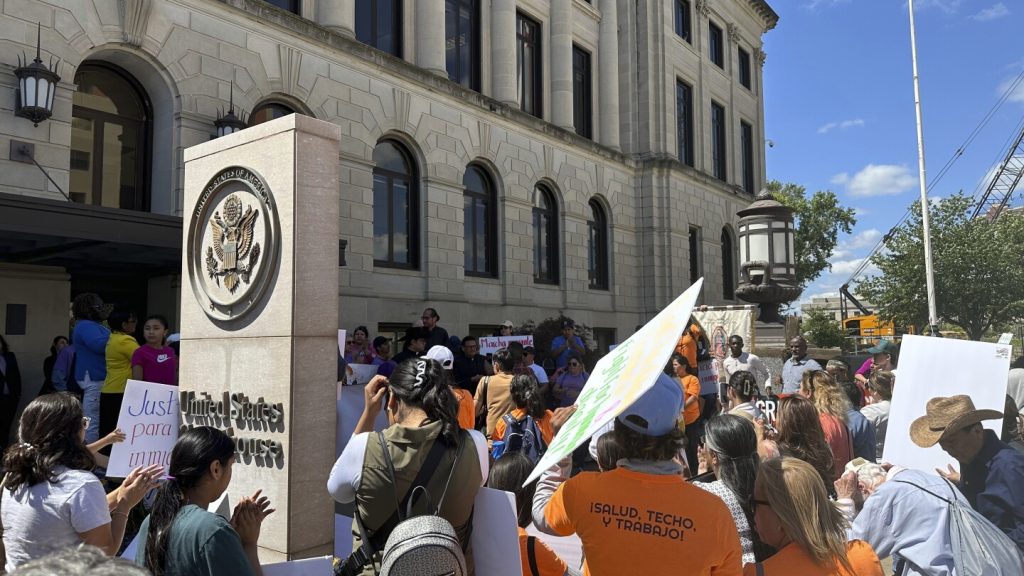Iowa is facing legal challenges over its new immigration law, which allows for criminal charges to be brought against individuals with outstanding deportation orders or who have been previously removed from the U.S. The law is set to go into effect on July 1, but its implementation is being contested in court by the U.S. Department of Justice and civil rights groups. The law is similar to ones in Texas and Oklahoma that have faced legal challenges as well. U.S. District Court Judge Stephen Locher is considering a request for an injunction on the Iowa law, and noted the potential for an appeal regardless of his ruling.
Iowa’s deputy solicitor general argued in court that the state law does not establish new immigration rules but simply allows state law enforcement to apply federal law. The state maintains that they are adopting the federal standard and will not prosecute individuals who are legally in the country under federal rules. However, opponents of the law claim that it infringes on the federal government’s sole authority over immigration matters. They argue that the Iowa law violates federal responsibility and does not make exceptions for individuals who have been deported before but are now in the country legally, such as asylum seekers.
The implementation of the Iowa law has raised concerns among law enforcement officials and legal experts, as immigration enforcement has historically been a federal responsibility. The state has stated that law enforcement will contact the federal government to determine an individual’s immigration status, as Iowa does not have an independent immigration database. The state argues that federal authorities will determine if a person is violating federal law, and if so, they would also be violating Iowa’s law. The state maintains that the law only allows Iowa officials to bring migrants to federal immigration officers at Iowa’s ports of entry.
Outside the court hearing, more than 100 people gathered to protest the new law, holding signs and listening to speeches in Spanish and English. Advocates expressed concerns that the law would create fear and misinformation in immigrant communities across the state. They argued that the Iowa law does not offer a solution to the issues with the federal government’s handling of immigration and called for a more workable immigration system. Despite the protests and legal challenges, the Iowa government stands by its law and argues that it aligns with federal regulations and respects federal authority over immigration matters. The legal battle over the law is ongoing, with a decision on the injunction request pending.














